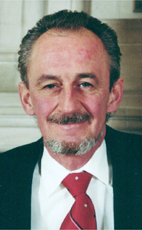Madam Speaker, it gives me great pleasure to rise today to speak on Motion No. M-261, a motion which encourages the government to develop a comprehensive national head start program. I thank my colleague the hon. member for Esquimalt—Juan de Fuca for introducing this motion. I congratulate him for his compassion and for the work he has done on this very important issue.
There is no doubt that youth crime is alarming. Social workers are getting calls from parents who claim their children are uncontrollably violent. It is even a problem among elementary school children and preschoolers. It is not rare to see 10-year old children behaving violently at school, nor is it rare to see that between siblings. There is indeed something inconceivably wrong with an 11-year old boy who rapes or a 14-year old who stabs a 7-year old to death.
The truth is that harsher punishment or counselling and proper parenting are simply not enough. What is the solution? The solution might be found in programs such as head start which would assist at risk children in their development. Head start programs aim to level the playing field before children enter the public school system. This is a constructive approach to deal with the problem.
Every year thousands of disadvantaged children enter school for the first time. Many have health problems and many lack self-confidence. If children are allowed to fall behind in the early years, then often their troubles are compounded in later years. Extensive research has shown that it is possible to enhance the ability of a disadvantaged child to cope with school and their total environment.
A real head start program addresses the emotional, social and psychological needs of children, as well as their health and nutritional requirements. All existing head start programs have been very favourably received by educators, child development specialists, community leaders and parents.
This program will have a significant impact on communities. To a certain extent, it will make it possible to find solutions to a variety of situations: single-parent families, teenage pregnancies, illiteracy, homelessness, alcohol and drug abuse, and ill-treatment of children.
A head start program helps children to do better in school and provides parents with the knowledge and services they need to manage their lives better. Parents must participate directly in their children's development, playing a great role in this regard.
The head start program is patterned on the national action program for children and on the agreement worked out by premiers for the purpose of accelerating the work planned under this program.
Naturally, funding for the head start program would come from the federal, provincial and municipal governments and would require the participation of community volunteers. It would recognize that the needs of children vary by community, province and region.
What is the priority? The priority must be our children. They learn how to learn at an early age. Have members ever been in an intensive care neonatal unit? Have they ever seen a baby addicted to drugs or affected by alcohol? Do they know how much that costs? It costs hundreds of thousands of dollars. Then the child becomes a ward of the community, perhaps permanently damaged.
This is why we are having this debate today. We want to stress the importance of little children, young and formative pieces of clay. Children are and must be our priority.
We must create a special early childhood development program for disadvantaged children. It is an investment we will never regret.
In the first 18 months a child learns to think well or poorly of himself. In the first two years children either learn how to learn or do not learn how to learn. This is why we must provide them with tools for their development and guide them on the right path. It costs a lot more to send kids to prison than to send them to school.
I am passionate about early childhood education for disadvantaged, tiny children. Studies prove that if we love and nurture, show affection to these little pieces of clay they will be honour students. Furthermore, studies confirm that there can be more than $7 in savings for every $1 spent on such programs.
We must be on the cutting edge of this initiative. We have eliminated the deficit. It is now time to invest in our children, our greatest asset. We have to take responsibility because it is our duty.
Let us come out of this debate with a consensus. We must continually rework the head start idea for it to become the most cost effective program ever developed.
I see that the hour has come to an end. I will continue the next time the matter is before the House.

